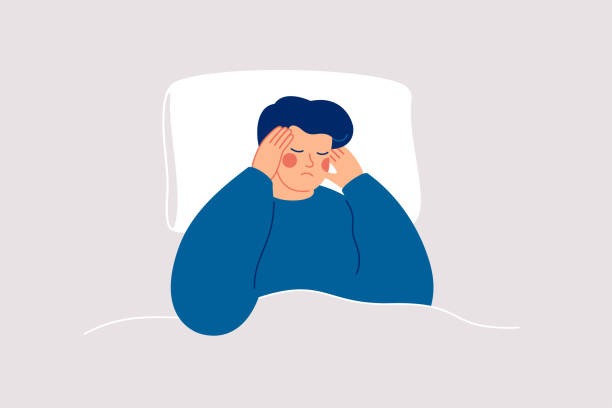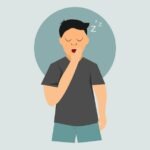Restlessness, or somnolence, is a common condition that affects many people. Because you are frightened or bored, you are unwilling or unable to keep still or to be quiet and peaceful. Restlessness may lead to additional symptoms, such as agitation, anxiety, insomnia, or irritability. Restlessness can have various causes, such as stress, medications, medical conditions, or lifestyle factors. Restlessness can also affect your daily activities, mood, and quality of life.
In this blog post, we’ll explain what restlessness is, what causes it, what symptoms it may have, and what treatment options are available. We’ll also share some tips and resources to help you prevent and manage restlessness and the conditions that cause it.
What is restlessness?
Restlessness is a term that describes the feeling of being uneasy or restless during the day or night. It can occur in any part of the day but is more common in the evening or night. Restlessness can affect your ability to relax, sleep, focus, or enjoy yourself. Restlessness can also make you feel nervous, anxious, or frustrated.
Restlessness can be acute or chronic. Acute restlessness is temporary and usually lasts for a few hours or days. It often results from occasional factors, such as a stressful event, a change in routine, or a lack of stimulation. Chronic restlessness is persistent and lasts for more than three months. It often results from underlying factors, such as a mental disorder, a physical illness, or a medication.
Restlessness can be mild or severe. Mild restlessness is when you feel slightly uneasy or restless from time to time. It may not interfere with your daily activities, but it may reduce your satisfaction or happiness. Severe restlessness is when you feel constantly uneasy or restless and unable to calm down. It may interfere with your daily activities and increase your risk of health problems or complications.
What causes restlessness?
Many factors can cause restlessness, including
• Stress: Stress is the most common cause of restlessness. It is the body’s response to a perceived threat or challenge that requires adaptation or action. Stress can affect any part of the body,
including the brain, the nervous system, the endocrine system, and the immune system. Stress can trigger the fight-or-flight response, which prepares you for danger by increasing your heart rate, blood pressure, breathing rate, and alertness. However, if stress becomes chronic or overwhelming, it can interfere with the relaxation response, which helps you calm down by decreasing your heart rate, blood pressure, breathing rate, and alertness. Stress can also cause emotional problems such as anxiety, depression, or anger, which can affect your mood and motivation.
• Medications: Medications are another possible cause of restlessness. Many medications can cause restlessness as a side effect, either directly by affecting the brain chemicals that regulate mood and behavior, or indirectly by causing other symptoms such as insomnia, pain, or nausea that interfere with relaxation. Some examples of medications that can cause restlessness are:
• Antidepressants: Antidepressants are drugs used to treat depression and other mood disorders. They work by altering the levels of neurotransmitters such as serotonin, dopamine, and norepinephrine in the brain. However, antidepressants can also cause restlessness in some people, especially during the first few weeks of treatment or when changing the dose.
• Stimulants: Stimulants are drugs used to treat attention deficit hyperactivity disorder (ADHD) and narcolepsy. They work by increasing the activity of neurotransmitters such as dopamine and norepinephrine in the brain. However, stimulants can also cause restlessness in some people especially if taken in high doses or late in the day.
• Antipsychotics: Antipsychotics are drugs used to treat schizophrenia and other psychotic disorders. They work by blocking the action of neurotransmitters such as dopamine and serotonin in the brain. However, antipsychotics can also cause restlessness in some people especially if taken for a long time or at high doses.
• Medical conditions: Medical conditions are another potential cause of restlessness. Many medical conditions can cause restlessness by affecting your sleep quality or quantity or by affecting your brain function or metabolism. Some examples of medical conditions that can cause restlessness are:
• Restless legs syndrome (RLS): RLS is a disorder that causes an uncomfortable urge to move your legs, especially at night when you try to sleep. RLS can also cause sensations such as tingling burning itching crawling or pulling in your legs. RLS can disrupt your sleep cycle and make you feel tired groggy and restless during the day.
• Anxiety disorders: Anxiety disorders are a group of mental illnesses that cause excessive fear worry nervousness or panic. Anxiety disorders can affect any part of your life including your social personal or professional relationships. Anxiety disorders can also cause physical symptoms such as sweating trembling heart palpitations shortness of breath or nausea. Anxiety disorders can make you feel restless edgy or jittery during the day.
• Hyperthyroidism: Hyperthyroidism is a condition that occurs when your thyroid gland produces too many thyroid hormones which regulate your metabolism and body temperature. Hyperthyroidism can cause high metabolism which can make you feel restless hot sweaty hungry thirsty or irritable during the day.
• Lifestyle factors: Lifestyle factors are another possible cause of restlessness. Some lifestyle factors that can affect your sleep quality or quantity or your energy level during the day are:
• Diet: Diet can affect your sleep and wakefulness by influencing your blood sugar levels your hormone levels and your digestive system. Eating too much too little too late at night too spicy too sugary too caffeinated too alcoholic too processed too fatty too salty too acidic too bland too boring too exciting too varied too monotonous too healthy too unhealthy too organic too artificial too natural too synthetic too fresh too stale too hot too cold too hard too soft too crunchy too chewy too smooth too lumpy too sweet too sour too bitter too salty too spicy too bland… (you get the idea) …can disrupt your sleep cycle and make you feel restless during the day.
• Exercise: Exercise can affect your sleep and wakefulness by influencing your body temperature your hormone levels and your mood. Exercising regularly at moderate intensity can improve your sleep quality and make you feel more energetic happy and alert during the day. However, exercising too much too little too close to bedtime too early in the morning too late in the evening too intensely too gently too long too short… (you get the idea) …can disrupt your sleep cycle and make you feel restless during the day.
• Stress: Stress can affect your sleep and wakefulness by influencing your nervous system your hormone levels and your emotional state. Stress can activate your fight-or-flight response which prepares you for danger by increasing your heart rate blood pressure breathing rate and alertness. However, if stress becomes chronic or overwhelming it can interfere with your relaxation response which helps you calm down by decreasing your heart rate blood pressure breathing rate and alertness. Stress can also cause anxiety depression or anger which can affect your mood and motivation during the day.
What are the symptoms of restlessness?
The symptoms of restlessness depend on its cause severity and duration. Some common symptoms of restlessness are:
• A feeling of uneasiness or nervousness
• Excessive fidgeting, inability to stay still
• Irritability
• Difficulty concentrating
• Racing thoughts
• Agitation
• Anger
• Emotional outbursts
• Unusually calm behavior
• A lack of attention to surroundings
Restlessness can also be associated with other conditions, such as restless legs syndrome, which causes a strong urge to move your legs when you are at rest.



